PPC keyword research is the process of finding the exact words or phrases people type into Google when they’re looking for something related to your product or service. It helps you target the right audience, avoid wasting money on irrelevant clicks, and attract people who are actually ready to buy.
When I asked experts for their #1 PPC tip for beginners (see my introduction to search ads), many said it’s smart to focus on keywords that are less popular, more specific, and cheaper. This guide will help you find those keywords, and avoid wasting money bidding on ones you already rank for organically.
One downside of using Google Keyword Planner for PPC keyword research is that it often shows broad search volume ranges, which makes it hard to judge how popular a keyword really is.
For instance, for the keyword “crypto wallet” it shows a broad range of 10k-100k searches.
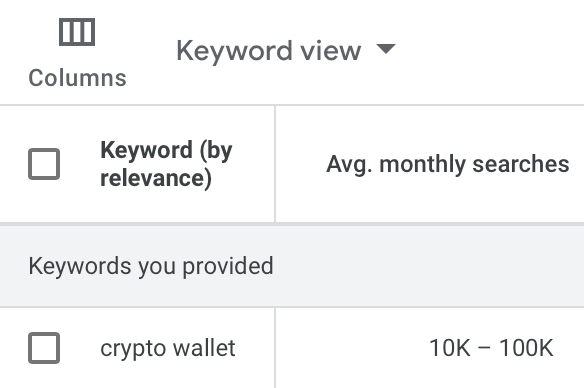
Tools like Ahrefs (that’s us!) can give you a clearer picture of a keyword’s popularity, making it easier to choose and prioritize the right ones for your campaign.

The Keyword Planner also tends to group similar keywords together, which can result in vague or overly broad suggestions that don’t reflect what people are actually searching for, especially when you’re looking for long-tail or niche keywords.
On top of that, the tool doesn’t provide data on your competitors, so you can’t see who’s bidding on which terms or how tough the competition is. All of this makes it harder to find precise, low-competition keywords that are actually worth your ad budget.
That’s where a combo like Ahrefs and ChatGPT really shines.
With Ahrefs, you can find more keyword ideas, get more precise volume estimates, and paid keyword reports for any competitor’s domain, and even translate for other markets on the spot.
Then, with ChatGPT, you can quickly filter, cluster, and prioritize those keywords based on business value, search intent, or even funnel stage.
In this guide, you’ll learn how to put this process into action step-by-step.
Let’s start with a few broad keywords related to your business (seed keywords). You can brainstorm some yourself and use Ahrefs’ built-in AI to help expand the list.
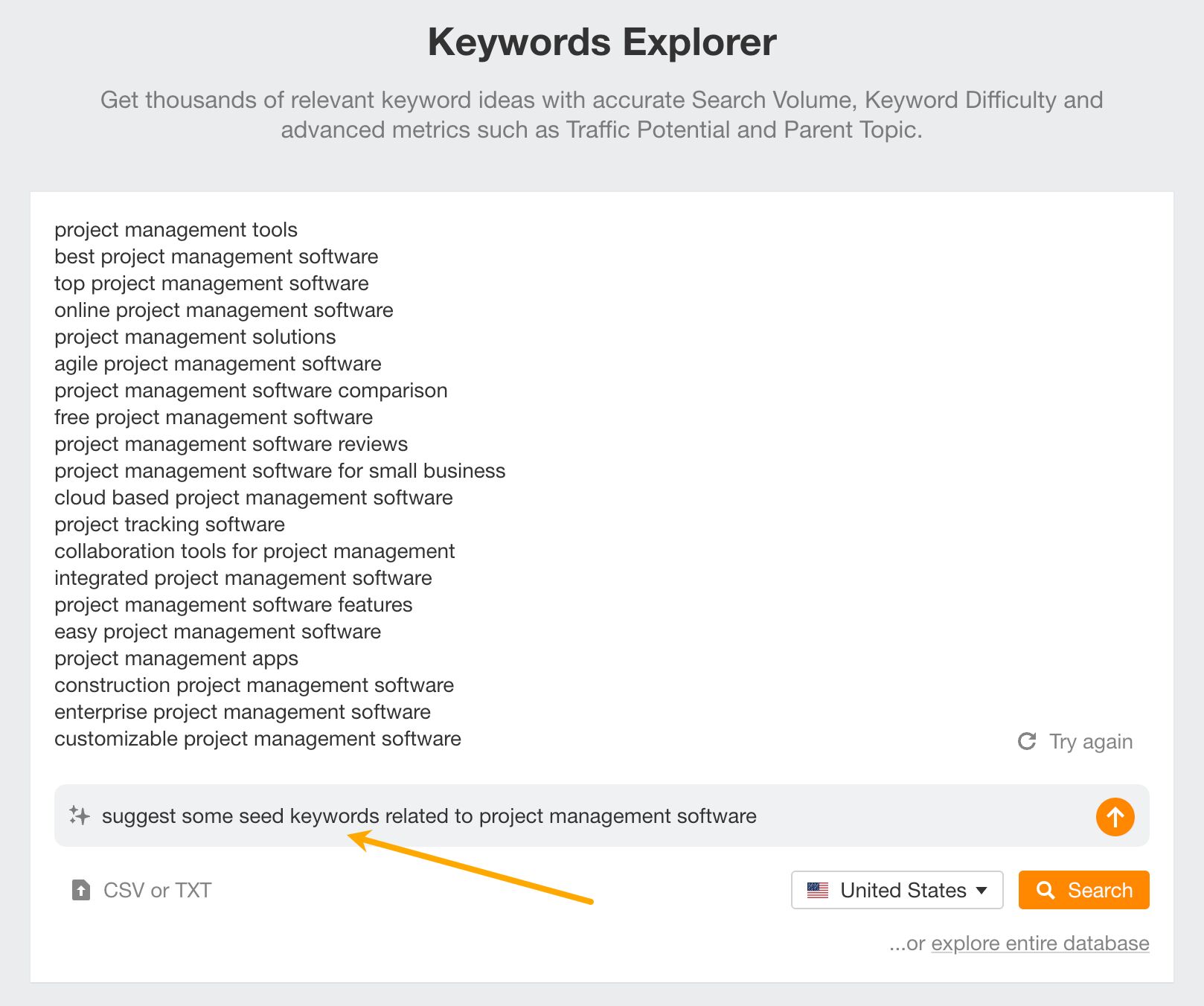
Next, go to the Matching terms report. Make sure you’re looking at results for the country where your core audience is. If you’re planning on running international or multilingual campaigns, we will translate the keywords in the following steps.
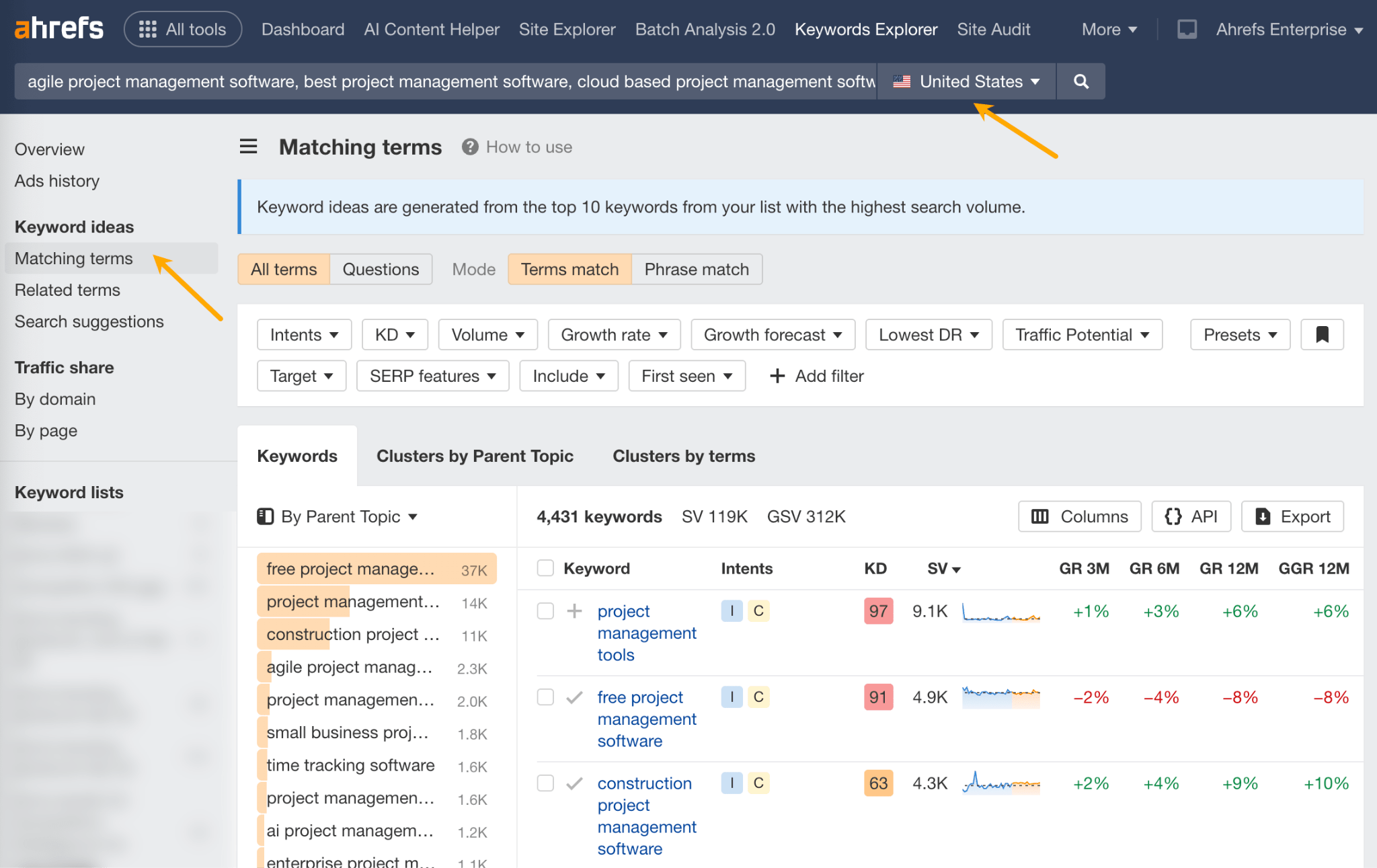
Exclude keywords where you rank in the top 10 and select intents: commercial and transactional. The two intent types typically mean the searcher is close to making a purchase. You can also filter out expensive keywords using the CPC filter.
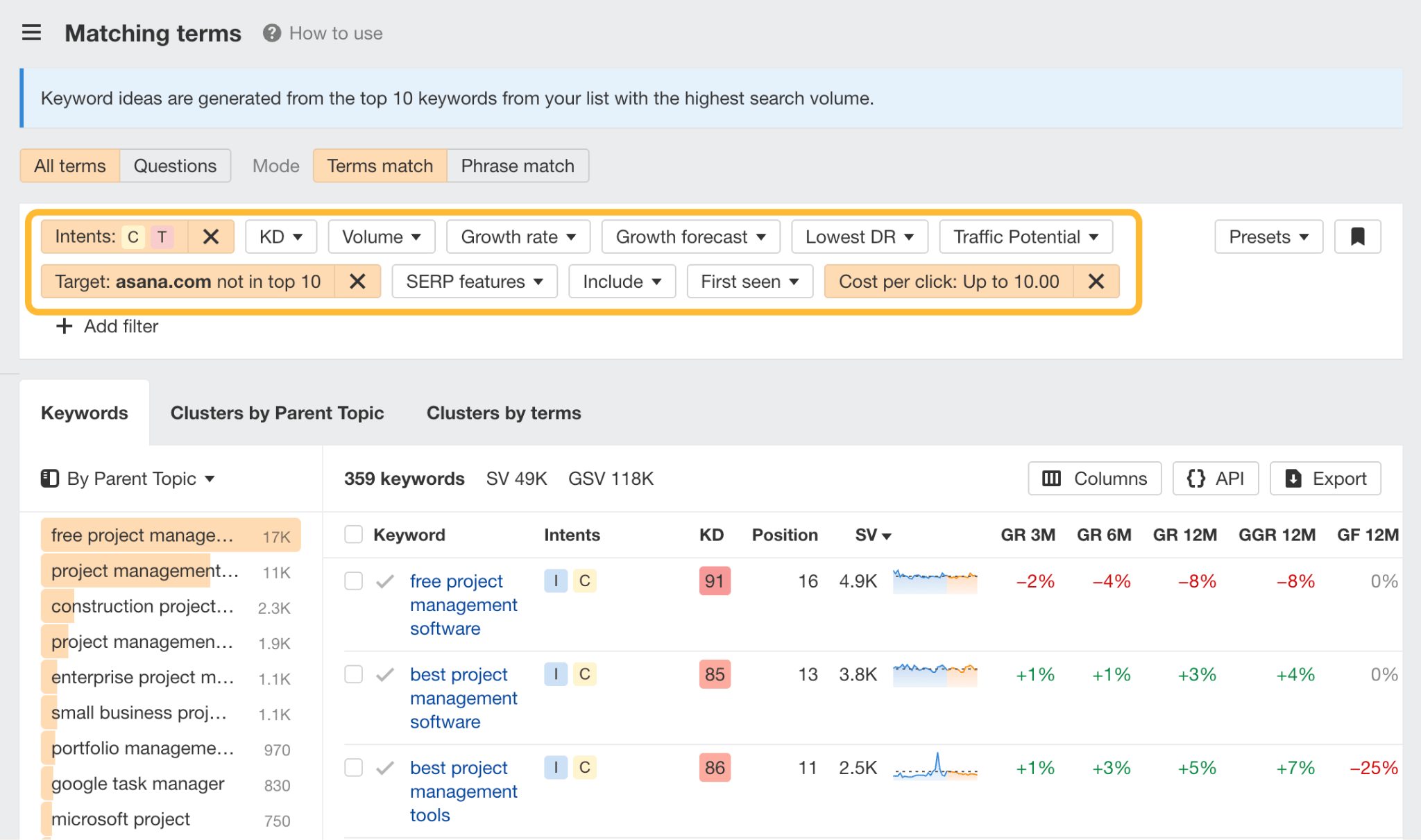
If you’re not sure how much you should pay for a click, you can figure out your maximum CPC with some simple math:
- Using product price. Max CPC = (Product price x Profit margin x Conversion rate)
- Using your max budget and expected number of conversions. Max CPC = (Budget x Conversion rate)/ Expected number of conversions
Finally, select all keywords and add them to a new keyword list.
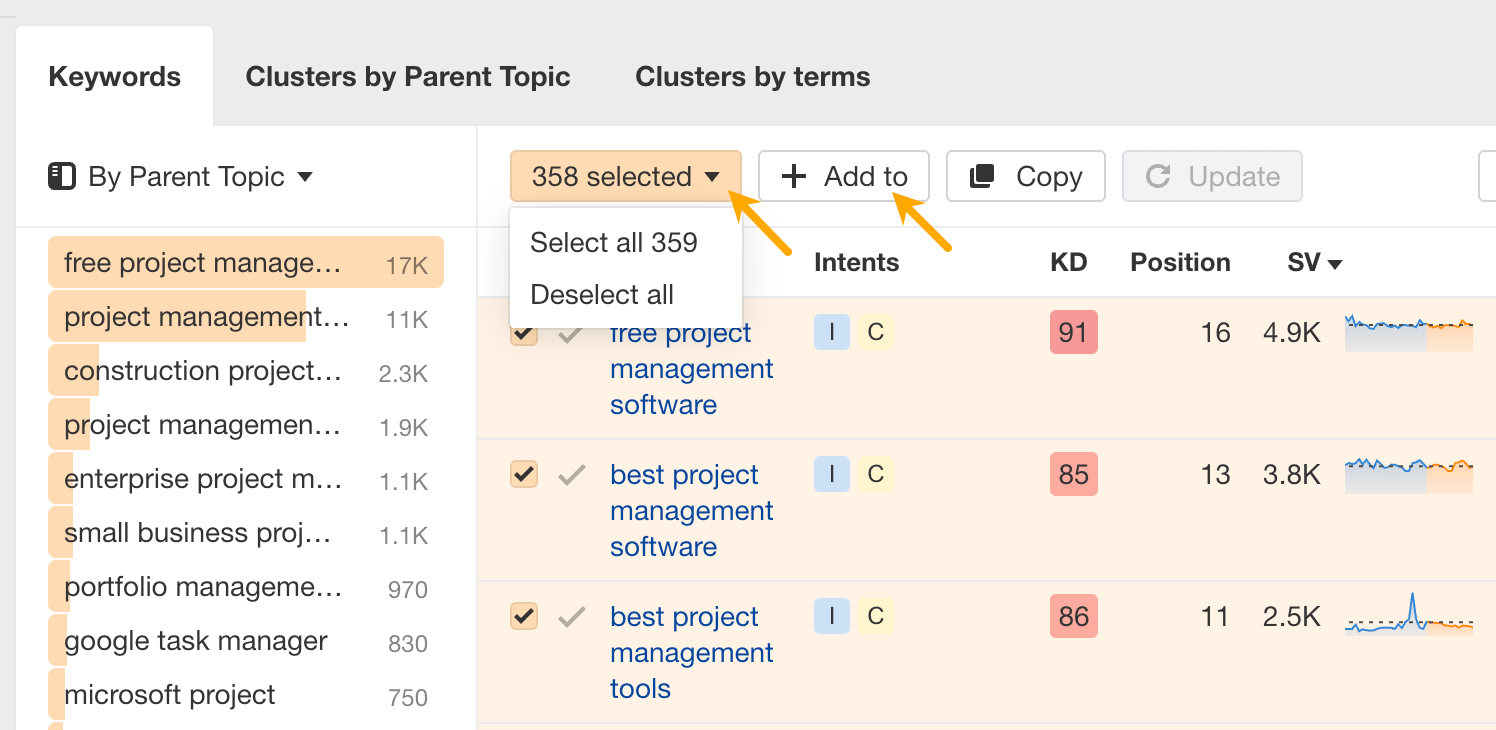
Tip
If your organic rankings are close to the top 10, you can optimize your content to move up. But you could also bid on those keywords in the meantime. Since you already rank for them, your ads will likely get a higher relevance score.
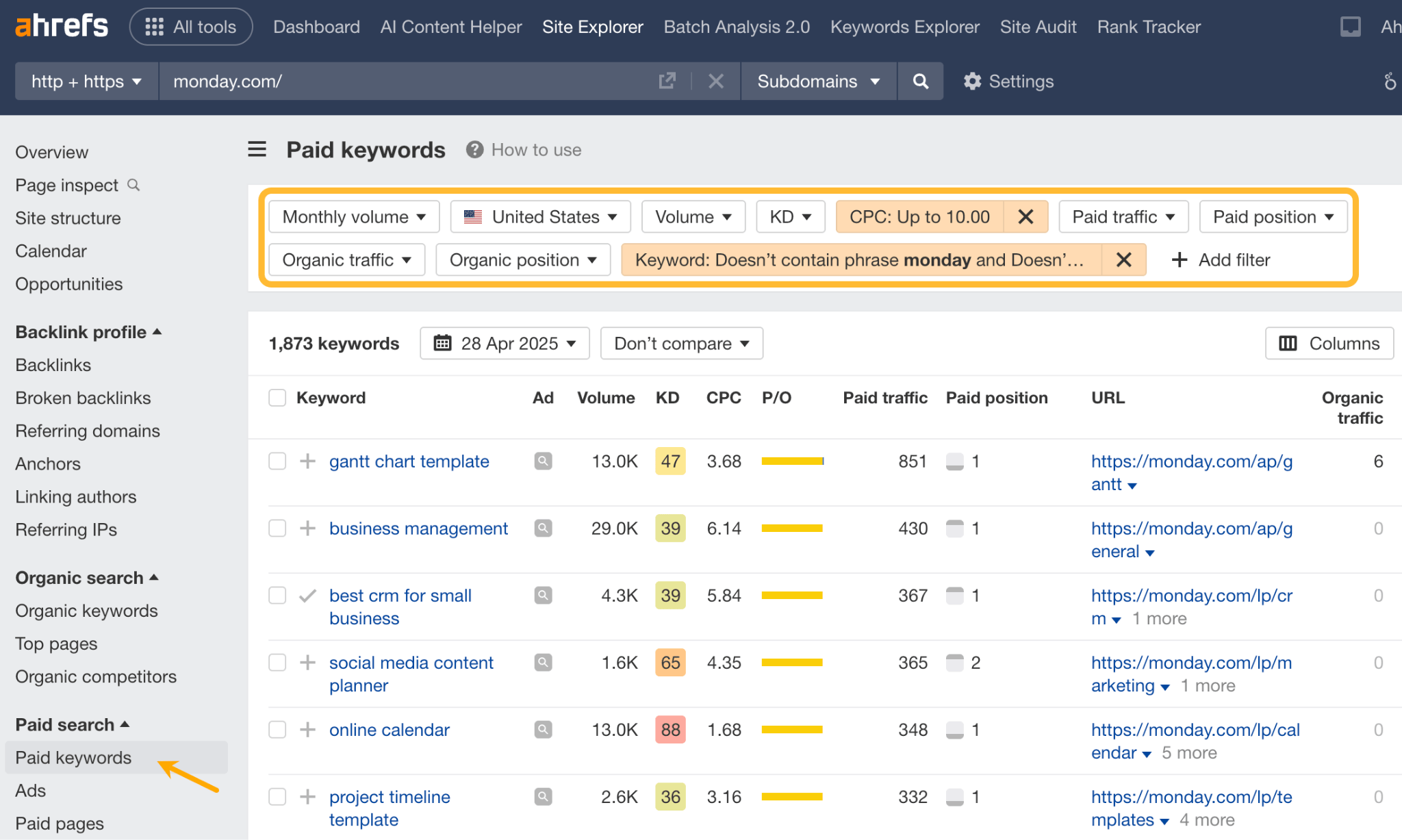
Add the results to your keyword list. Repeat for each competitor.
Tip
Here at Ahrefs we’ve just released the Paid Keywords 3.0 report. It shows which ads your competitors ran over the past month. Use it if the regular Paid Keywords report doesn’t return enough ads or whenever you want a broader view from the start.
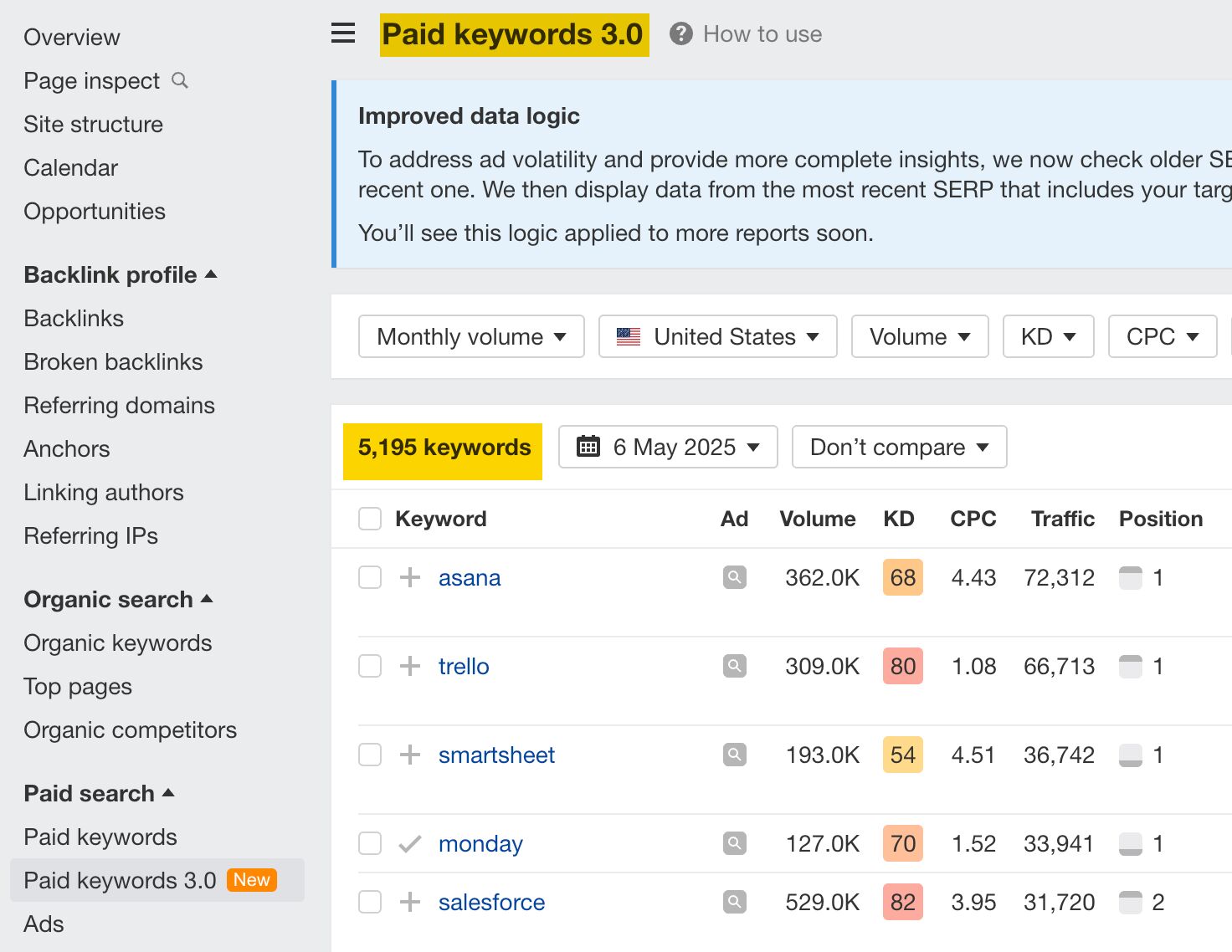
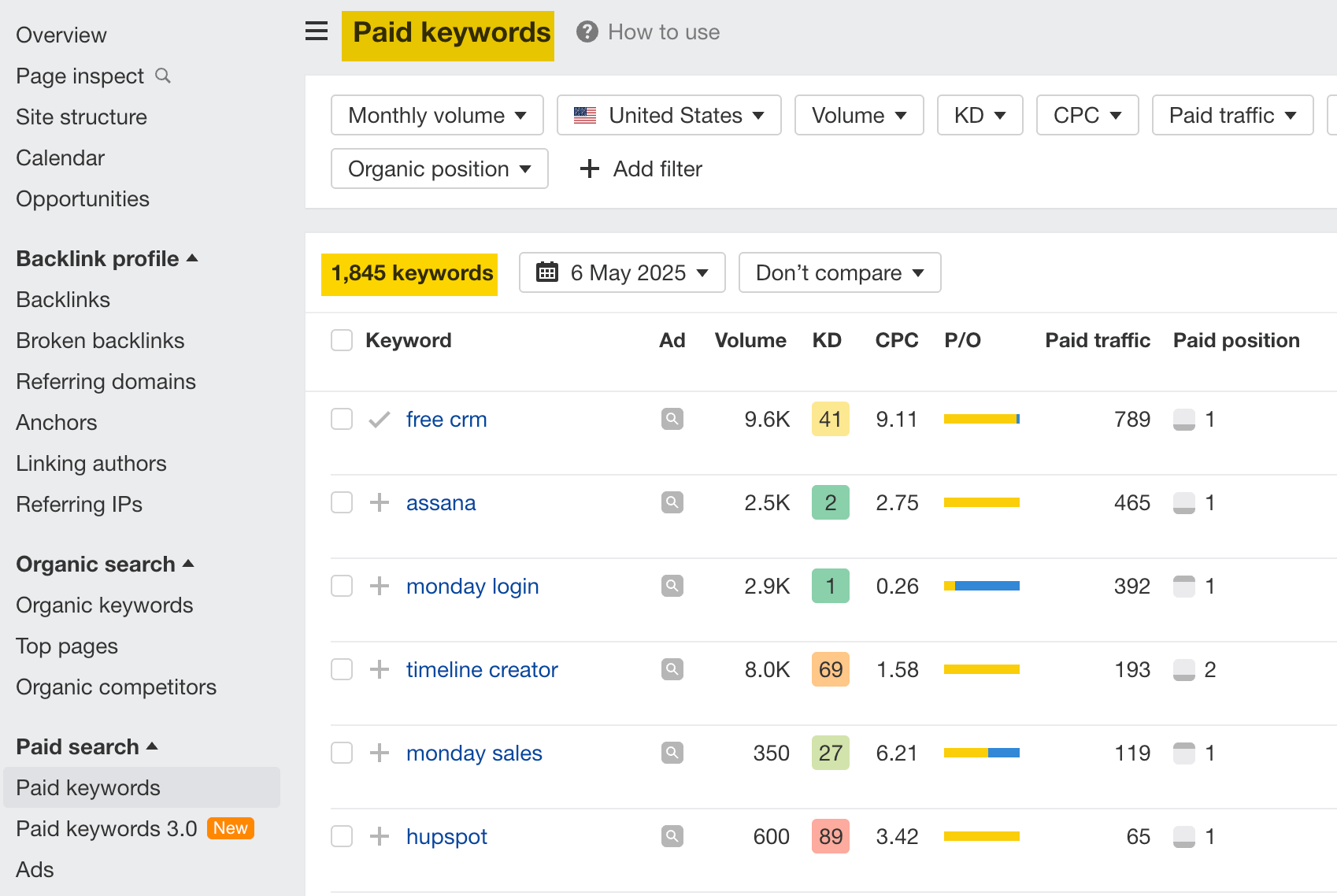
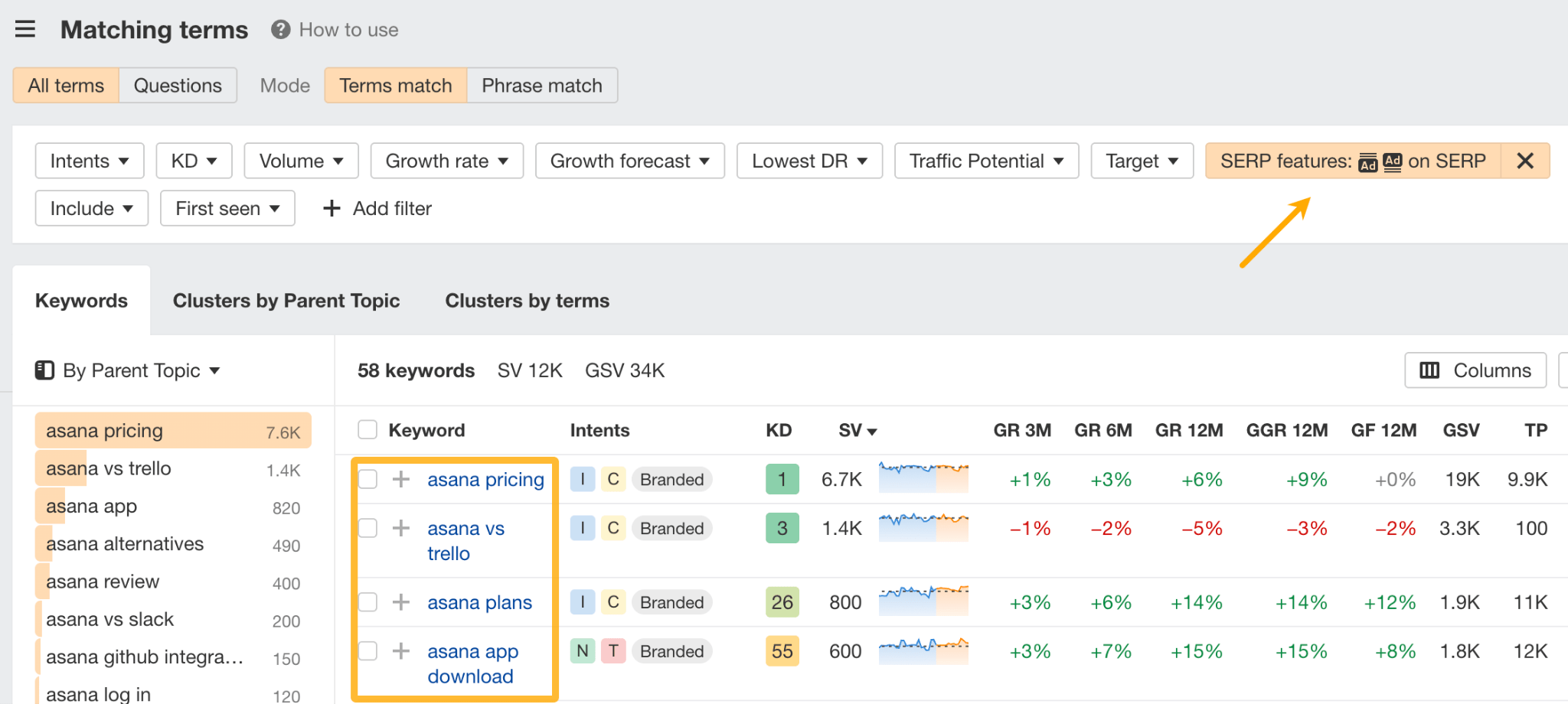
Similar Posts
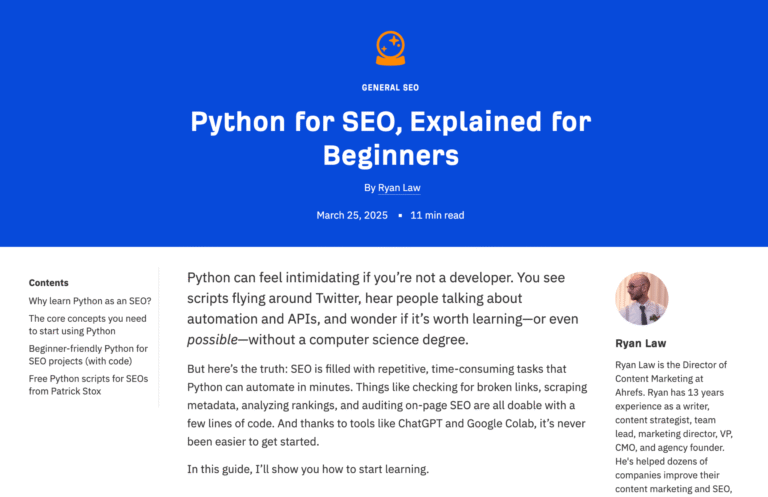
My Complete AI Content Process for Ahrefs
Here’s the complete process I use to publish high-quality AI content on the Ahrefs blog. I’ll be honest: there are parts of my job that I don’t like. Writing my 500th article on content gap analysis because we found a new long-tail keyword to target. Listing out the features of 30 free SEO tools for yet…

What Is Domain Renewal?
Renewing your website’s lease on the Internet for another year. Your domain is your castle. It’s the name of your website, and it may be responsible for most of your sales. Domain renewal should be one of the most important tasks on your to-do list, and letting it lapse can cause so much damage. Knowing…
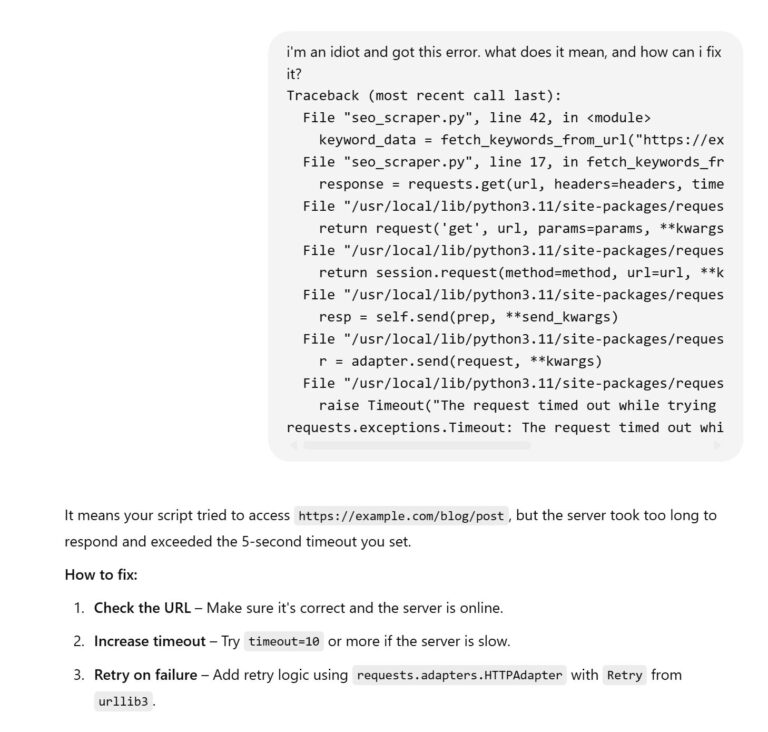
Python for SEO, Explained for Beginners
Python can feel intimidating if you’re not a developer. You see scripts flying around Twitter, hear people talking about automation and APIs, and wonder if it’s worth learning—or even possible—without a computer science degree. But here’s the truth: SEO is filled with repetitive, time-consuming tasks that Python can automate in minutes. Things like checking for…

How Much Does an SSL Certificate Cost in 2025? Your Comprehensive Guide to Prices
So, what’s the price of an SSL certificate in 2025? Our handy guide to prices and what you get for your money has you covered. Table of Contents So, you’ve finally decided to get an SSL certificate to make sure your website is secure and gives your visitors confidence. But how much does an SSL…
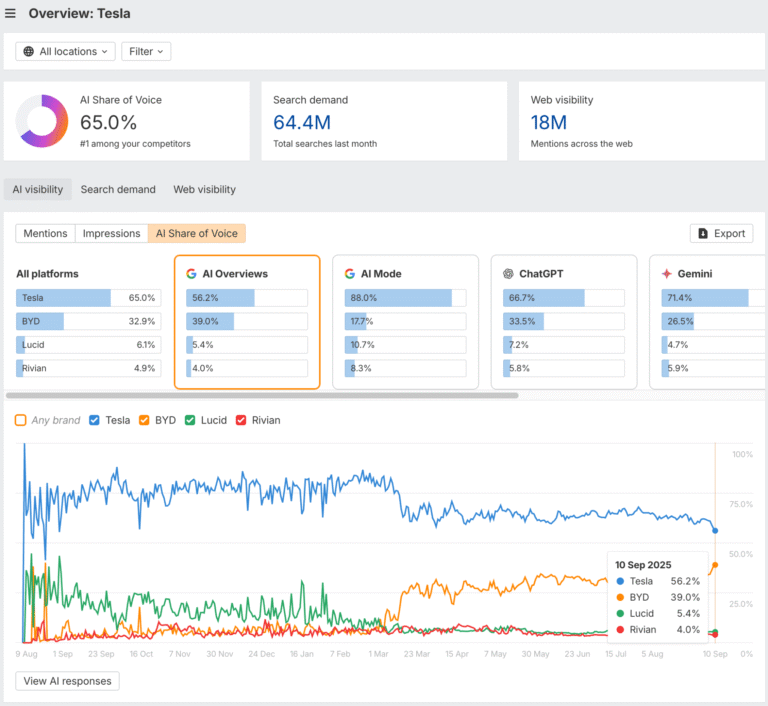
The Complete AI Visibility Guide for SEOs, Marketers, and Site Owners
Visibility in AI search is still in its early stages, which means you’re not late to the game—you’re actually early. Most businesses haven’t even started tracking their AI mentions, let alone optimizing for them. This creates a genuine first-mover advantage for those who act now. This guide will walk you through everything you need to know…
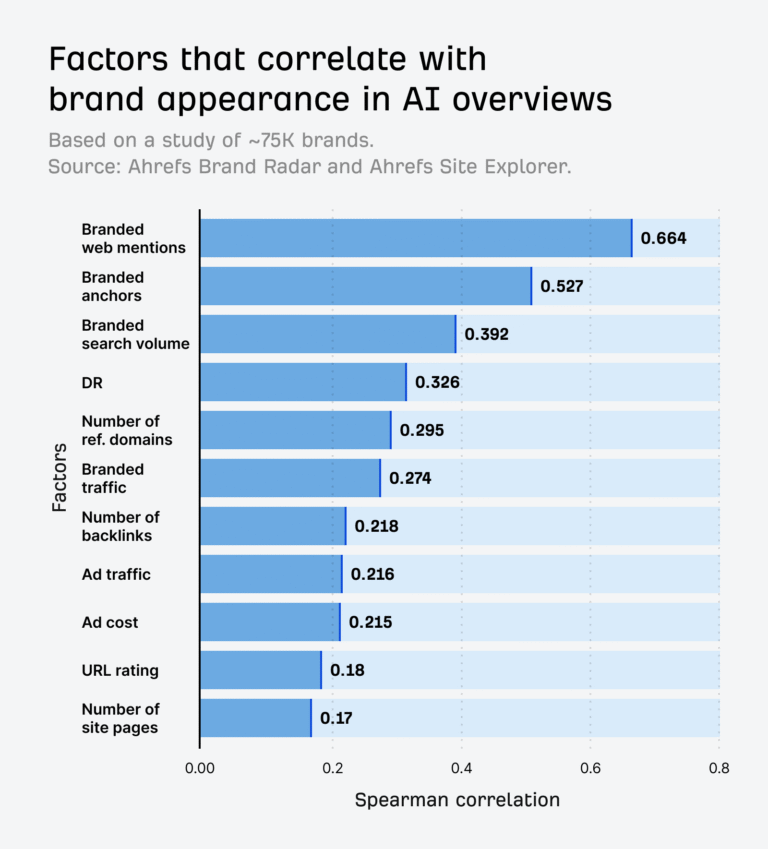
What We Actually Know About Optimizing for LLM Search
When you search on the internet, there’s a good chance LLMs are involved somewhere in the process. If you want any chance of visibility in LLM search, you need to understand how to make your brand visible in AI answers. The latest wave of experts claim to know the “secret” to AI visibility, but the…
